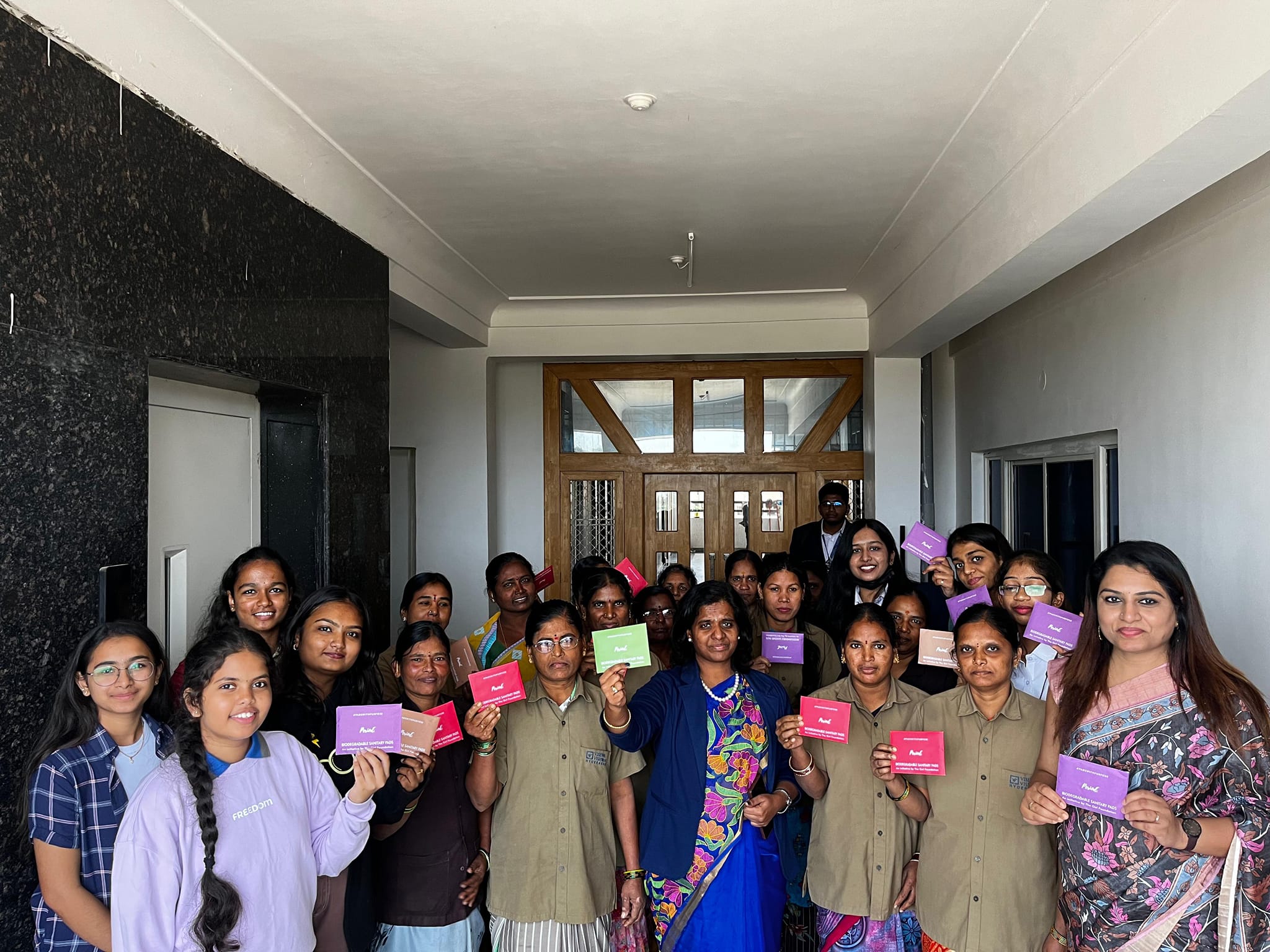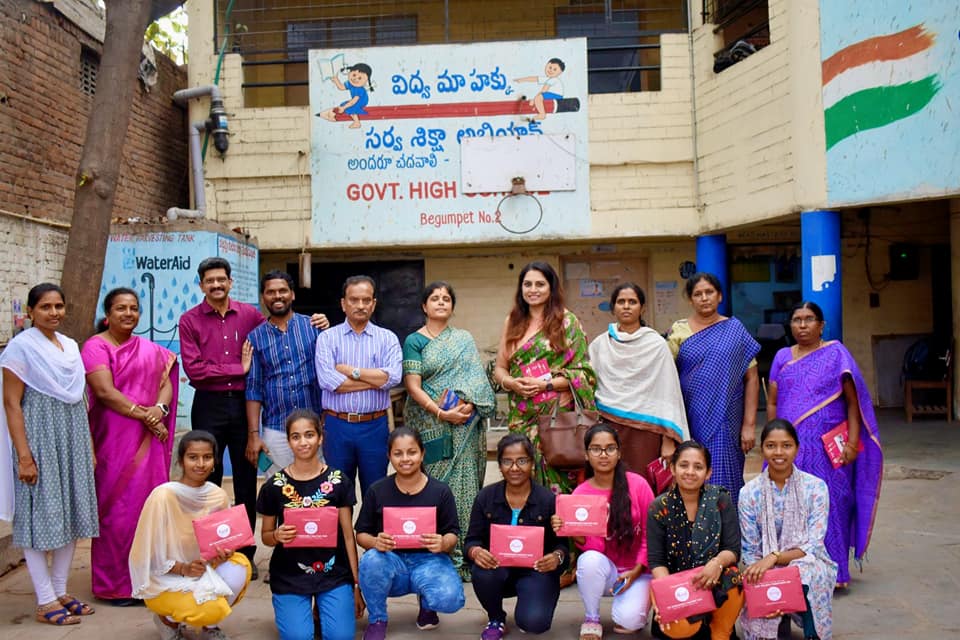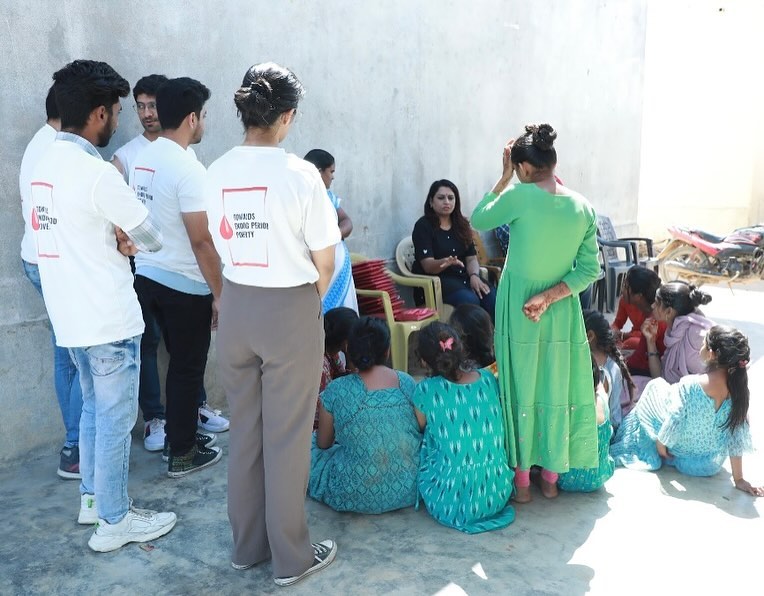
In many parts of the world, including Telangana, cultural taboos surrounding menstruation persist, contributing not only to the stigmatization of this natural biological process but also to issues like improper disposal of menstrual waste. Miss Rohini Naidu, founder of The Girl Foundation, has been a pioneering force in tackling these stigmas and ensuring that girls and women in need have access to proper menstrual hygiene products. By distributing sanitary pads, initiating open discussions about menstruation, and advocating for sustainable disposal practices, she aims to break the silence on period poverty and menstrual waste management. But to end period poverty, we need more than one voice — we need yours too.

Cultural Attitudes:
In many cultures, menstruation is still viewed as unclean, leading to secrecy and shame around the topic. This stigma prevents open conversations about not just menstrual health but also the critical issue of waste management. Without proper education on how to dispose of sanitary products, many women resort to burning or burying pads, flushing them, or throwing them in open fields or rivers, which impacts the environment. Miss Naidu’s foundation is committed to breaking these age-old taboos, making menstruation a normal, open conversation. When we destigmatize menstruation, we remove the shame, allowing people to make informed and environmentally conscious choices.

Hygiene Practices and Public Health Impact:
Improper disposal of menstrual products, combined with a lack of access to sanitary facilities, can have severe consequences for public health. Non-biodegradable products like plastic-based sanitary pads contribute to pollution, blocking drains and contaminating water sources. In areas where waste management systems are underdeveloped, this becomes a growing concern, especially for rural Telangana. Miss Naidu stresses that discussing hygiene practices openly — how to dispose of pads, where to find waste bins, and the availability of biodegradable options — is essential for safeguarding both health and the environment.

Education and Awareness:
Through her foundation, Miss Naidu has shown how education can be a powerful tool to combat stigma. Workshops in schools and community centers, led by volunteers and local healthcare professionals, have empowered girls to understand their bodies and their hygiene needs better. This education extends to proper waste disposal methods, helping to create a generation that views menstruation not as a source of shame but as a regular, manageable part of life. One of the key messages shared in these sessions is that managing menstrual waste responsibly is just as important as having access to menstrual products.

Waste Disposal Methods:
As part of her initiative, The Girl Foundation promotes sustainable waste disposal methods, offering biodegradable sanitary pads to reduce environmental impact. Miss Naidu also advocates for the installation of incinerators in schools and public spaces, where girls can safely and hygienically dispose of their menstrual products. For those using traditional products, it’s essential to provide guidelines: wrapping used products in paper before discarding them in designated bins, using cloth pads that can be washed and reused, and avoiding flushing pads or tampons down toilets.

Conclusion:
Breaking the stigma around menstruation starts with open conversations. Miss Naidu’s work with The Girl Foundation has brought crucial awareness to period poverty and menstrual waste management in Telangana. Yet, to see lasting change, we all must participate in this conversation. By supporting her cause, you can help ensure that every girl has access to sanitary products and that they understand how to properly dispose of them — because ending period poverty is not just about providing pads, it’s about changing the way we think, talk, and act about menstruation.
Together, we can create a future where menstruation is normalized, and proper waste disposal practices become the norm, improving both public health and the environment. Your support can help Miss Naidu continue her essential work, reaching more girls, breaking more taboos, and making menstruation a subject of empowerment rather than shame.



